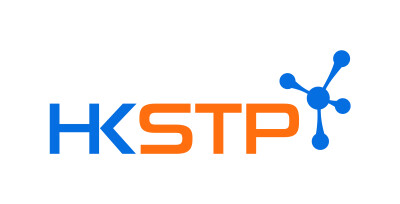OctaFX: Most crucial economic events in the second half of 2023. Part 2
Media Outreach
Sep 17, 2023
In this article, OctaFX experts describe three events investors and traders should be aware of. Learn more about the ongoing food crisis, the state of the European economy in case of energy shortages, and the impact of OPEC decisions on oil prices.
KUALA LUMPUR, MALAYSIA – Media OutReach – 18 September 2023 – With the global economy weakening, you may wonder what will impact capital markets in the second half of 2023. Will the food crisis worsen again? What factors will influence European currency this winter? What will be the key themes of the year ahead? Several vital stories in the remainder of 2023 are worth considering when investing in global markets.
The food crisis of 2022–2023 worsens again
One of the most significant food crises in history, affecting more than 1 billion people worldwide, continues into the second half of 2023. Over a quarter of a billion people are estimated to suffer from acute hunger, and some are on the brink of starvation. The situation has not improved now. Economic factors have added to climate problems, the effects of the pandemic, and the Ukrainian conflict.
In 2022, there were disruptions in global supply chains due to the coronavirus pandemic. Subsequently, with the beginning of the Ukrainian conflict, they worsened—there was a sharp jump in food prices (wheat, rice, corn, vegetable oil, and others). The world was cut off from the supply of goods, primarily grain—a food crisis broke out.
In 2023, the world is still in a situation of low cereal availability. Still, it is exacerbated by a strong U.S. dollar, which has strengthened due to the tightening of monetary policy in the U.S. Low-and middle-income countries importing food (mainly countries on the African continent) are unable to do so because of high prices and devaluation of local currencies against the dollar.
Reduced availability of grain crops is a fact of life. The current harvest season in July–August promises severe grain shortages and maise worldwide. Key importers are already buying in anticipation of future needs. In the autumn-winter period, prices for major grain crops will likely rise, which can be used for speculative transactions in grain futures.
Europe’s energy crisis is not over
The energy crisis in the EU is still being felt in the gas market. Gas prices in 2022 were significantly higher than in the previous year. Although the period of wild prices last year is over, this does not mean the problem has disappeared.
Gas demand is down in 2023, but not due to efficiency improvements or structural changes in the energy sectors. The main reason for the decline in demand is the fall in production in energy-intensive industries, especially in the chemical one. This has reduced the need for gas and lowered its cost.
Although the EU has accumulated significant gas reserves, a cold winter could pose a challenge to the region’s energy security. If reserves are depleted, prices will start to rise again. In addition, the lack of reliable pipelines, including Nord Stream, is forcing a turn to more expensive liquefied natural gas (LNG). This creates additional problems and financial costs for consumers in Europe.
‘This puts the ECB in a difficult position. On the one hand, there’s a falling production and on the other—high prices. You have to choose between low inflation and recession on the one hand and a weak euro and high inflation on the other hand‘, said Kar Yong Ang, the OctaFX financial market analyst. ‘And, therefore, it is possible that euro currency will once again go to parity with the dollar’, he added.
The meeting of OPEC and non-OPEC members on 26 November in Vienna will determine the oil prices
On 26 November, the 36th semi-annual OPEC and non-OPEC Ministerial Meeting will be held in Vienna. The meeting will discuss the extension of the oil production cut agreement. From May until the end of 2023, many OPEC+ countries (Saudi Arabia, UAE, Kuwait, Iraq, Algeria, Gabon, Kazakhstan, Azerbaijan, and Oman) decided to further voluntarily reduce oil production by another 1.2 million bpd, while Russia extended its voluntary restrictions also until the end of the year. As a result, the total voluntary reduction from May to December should amount to 1.66 million bpd.
Depending on the decision made at the meeting, the overall oil supply may change. In case of its stronger reduction, the price of oil will rise. If there are no changes due to the meeting, or they decide to increase production, the cost of oil will fall. Therefore, it is recommended to make all trading decisions related to Brent and WTI trades with the upcoming meeting in mind.
We live in an unstable economic and political environment of challenge and turmoil. However, amidst the challenges, there are opportunities for those investors who keep their finger on the pulse of the action. From September 2023 onwards, there will be many opportunities, starting with the U.S. Federal Reserve’s interest rate decision and OPEC meeting in Vienna. How to utilise the opportunities we have described is up to you. The only thing is that they should not be ignored.
Hashtag: #OctaFX
The issuer is solely responsible for the content of this announcement.
About OctaFX
![]() OctaFX is an international broker that has been providing online trading services worldwide since 2011. It offers commission-free access to financial markets and various services already utilised by clients from 180 countries with more than 42 million trading accounts. Free educational webinars, articles, and analytical tools they provide help clients reach their investment goals.
OctaFX is an international broker that has been providing online trading services worldwide since 2011. It offers commission-free access to financial markets and various services already utilised by clients from 180 countries with more than 42 million trading accounts. Free educational webinars, articles, and analytical tools they provide help clients reach their investment goals.
The company is involved in a comprehensive network of charitable and humanitarian initiatives, including the improvement of educational infrastructure and short-notice relief projects supporting local communities.
OctaFX has also won more than 60 awards since its foundation, including the ‘Best Online Broker Global 2022’ award from World Business Outlook and the ‘Best Global Broker Asia 2022’ award from International Business Magazine.




